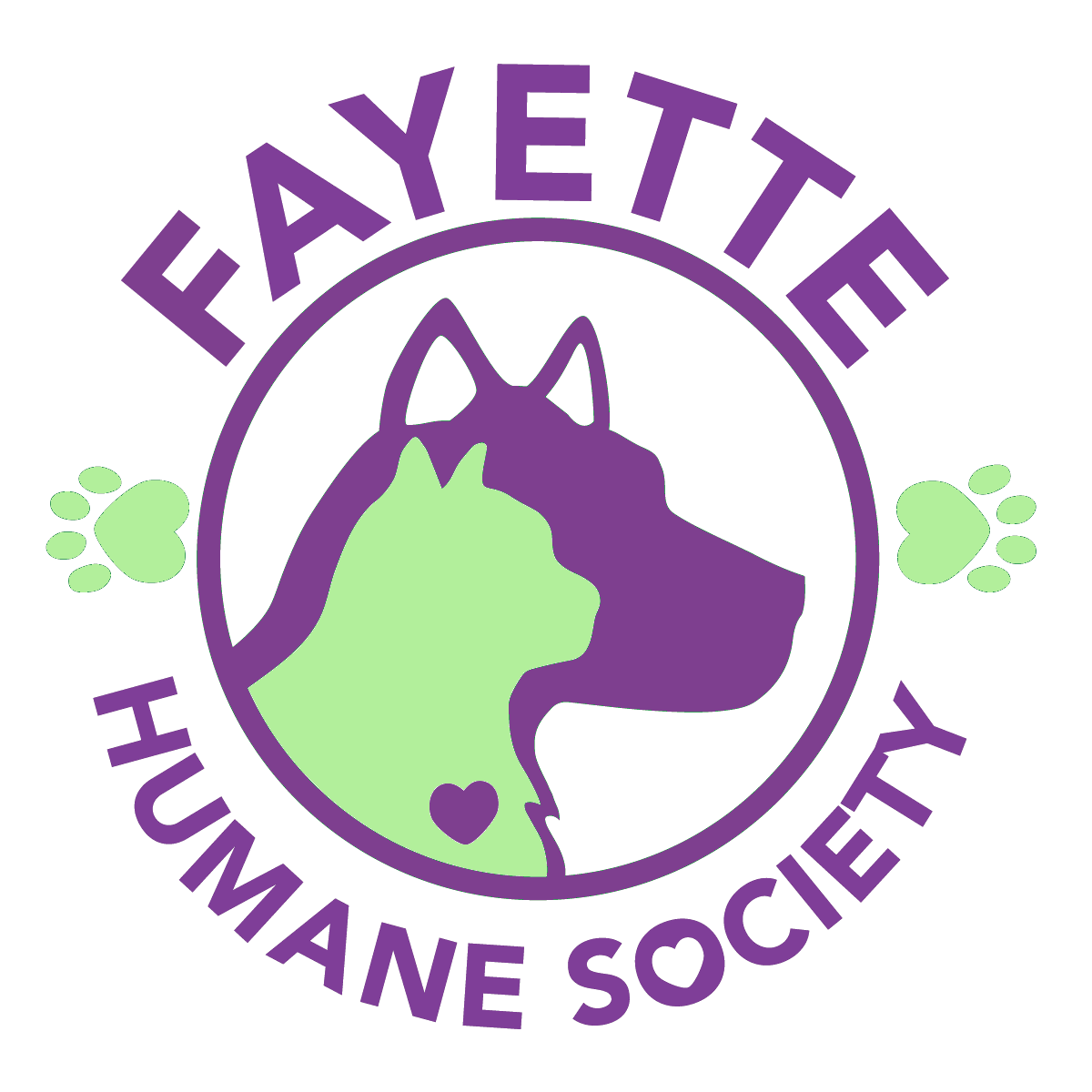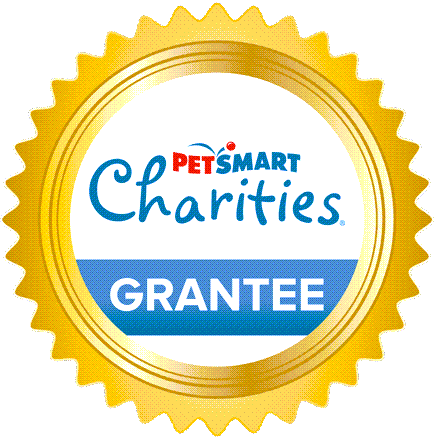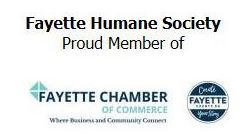REPORT ANIMAL CRUELTY
HOW TO IDENTIFY AND REPORT ANIMAL CRUELTY IN GEORGIA
Provided by the Humane Association of Georgia, Inc.
Incidents of animal fighting or animal cruelty may go unreported because of a lack of understanding of what constitutes animal cruelty and the agency that should be notified when it is witnessed. This page explains the legal parameters surrounding animal cruelty charges and the various governmental agencies involved with animal species or activity.
These guidelines should help direct you to the proper authority and allow more prompt and effective investigation of incidents. Use of these guidelines will enable the current enforcement manpower to concentrate on investigating, prosecuting, and monitoring reported cases.
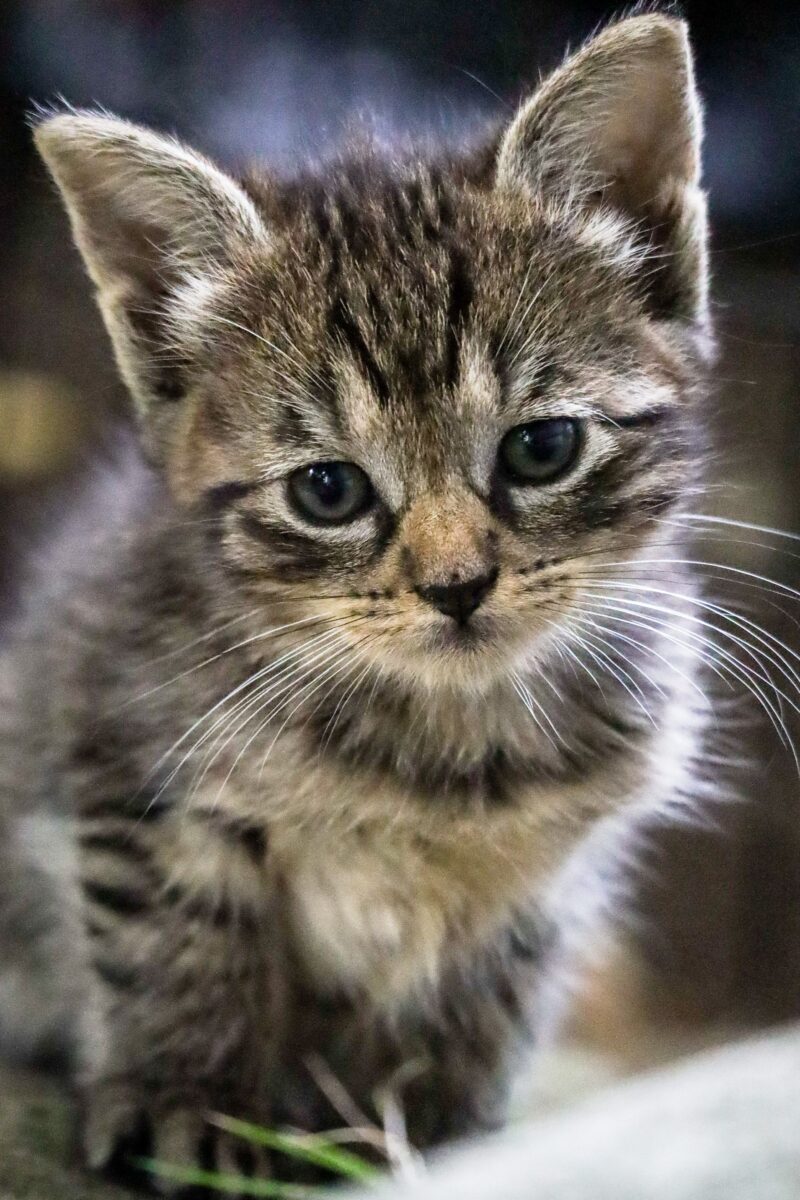
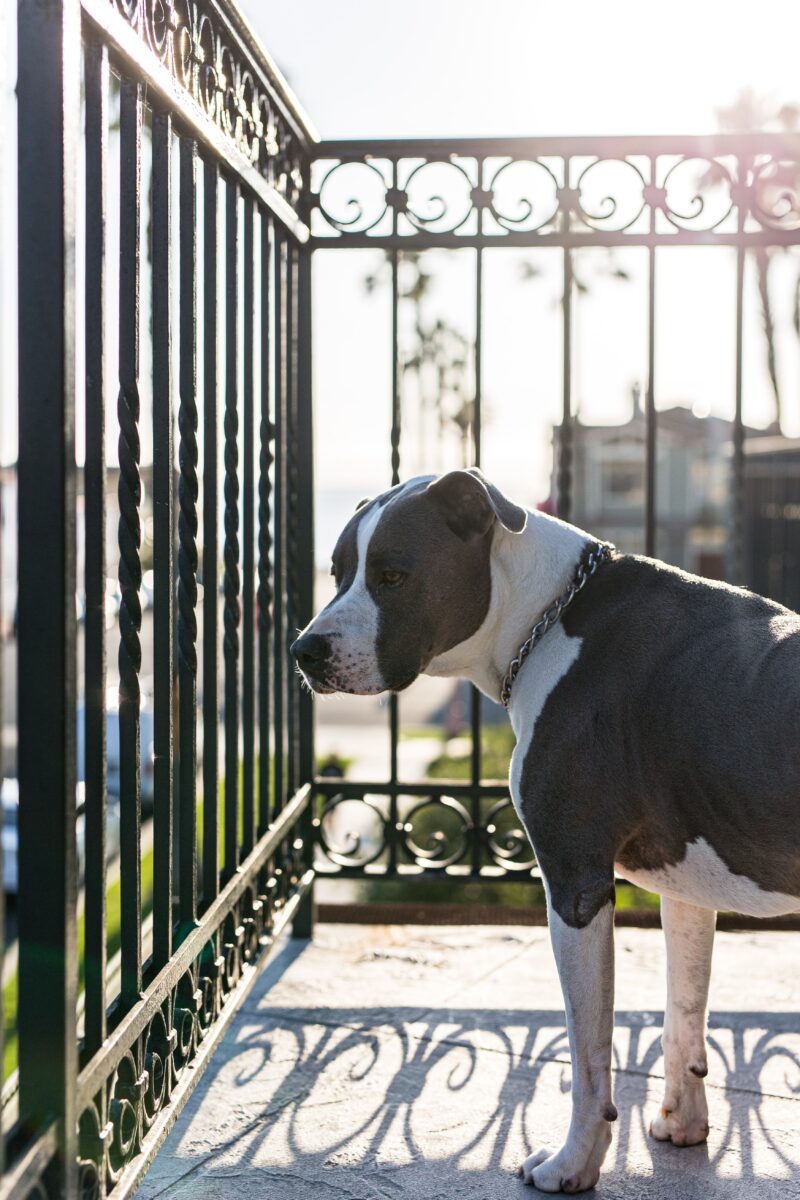
definition of animal cruelty
Animal Cruelty (misdemeanor charge): A person commits the offense of cruelty to animals when he/she causes death or unjustifiable physical pain or suffering to any animal by an act, an omission or willful neglect.
Willful neglect means the intentional withholding of food and water required by an animal to prevent starvation or dehydration. O.C.G.A. 16‐12‐4
Adequate food and water means food and water that is sufficient in an amount and appropriate for the particular type of animal to prevent starvation, dehydration or a significant risk to the animal’s health from a lack of food or water. O.C.G.A. 4‐11‐2, 4‐13‐2
Humane care of animals means, but is not limited to, the provision of adequate heat, ventilation, sanitary shelter, and wholesome and adequate food and water, consistent with the normal requirements and feeding habits of the animal’s size, species, and breed. O.C.G.A. 4‐11‐2, 4‐13‐2
Animal Cruelty (felony charge): A person commits the offense of aggravated cruelty to animals when he or she knowingly and maliciously causes death or physical harm to an animal by rendering a part of such animal’s body useless or by seriously disfiguring such animal…(paraphrased) except for conduct otherwise permitted under state or federal law. O.C.G.A. 16‐12‐4
Dog Fighting: A person commits the offense of dog fighting when he/she causes or allows a dog to fight another dog for sport or gaming purposes or maintains or operates any event at which dogs are allowed or encouraged to fight one another. O.C.G.A. 16‐12‐37
Cock Fighting (not legally defined): A person commits the offense of chicken fighting when he/she causes or allows a chicken to fight another chicken for sport or gaming purposes or maintains or operates any event at which chickens are allowed or encouraged to fight one another.
documentation needed
Witness: The name, address and telephone number of the person who witnessed the alleged incident. Such information may be kept confidential, depending on the particular agency; however, it is helpful for investigators to have a point of contact in the event of misdirection or miscommunication. Remember, the burden of proof falls upon the accuser.
Who: An accurate identification of the alleged perpetrator, if known, including name, address and telephone number, if possible; other helpful identifying information may include physical description, place of employment, description of vehicles (including tag numbers) and known associates or co‐participants in the alleged criminal activity.
What and How: An accurate and exact description of the incident witnessed. The investigator must receive sufficient details and be able to verify substantial portions of the information as true before being used to establish probable cause. Document complete descriptions of the animals and associated conditions. Please include pertinent conversations with the alleged perpetrator and eyewitness accounts to reconstruct the exact happenings of what and how the incident occurred (written notes and PHOTOGRAPHS are very valuable–a picture is worth a THOUSAND words). Also, include written documents or reports that verify conditions (e.g., the veterinary examination finding)
When: The date(s) and time(s) of the incident(s)
Where: The specific location where the incident was witnessed (physical address and city, community or county), including directions.
Who do I call?
There are multiple places you can call if you suspect animal cruelty, including:
- For Companion Animals (e.g., dogs, cats, exotic birds, pet rabbits, pot‐bellied pigs): Report those persons holding an Animal Protection License issued by the Georgia Department of Agriculture (or those that should be licensed) to the Animal Protection Division at 404‐656‐4914, Monday‐Friday, 8:00 a.m.‐4:30 p.m. Animal shelters, rescue groups and humane societies that house animals, pet breeders, pet dealers, pet shops, pet groomers, kennels, aviaries all require an Animal Protection License which must be prominently displayed at each licensed place of business.
- Report all other persons to the local law enforcement agency and the animal control office, if one exists in the area. Report to the municipal or county police department or county sheriff’s department using the non‐emergency number, unless the alleged perpetrator is actively involved in an act that threatens an animal’s life. If you suspect that other crimes (e.g., illegal drug activity or gambling) are involved, be sure to report this as a part of the call.
- For equine (e.g., horses, mules, donkeys, zebras): Report persons to Georgia Department of Agriculture Equine Health Section at 404‐656‐3713, Monday‐Friday, 8:00 a.m.‐4:30 p.m. or to the local law enforcement agency and the animal control office, if one exists in the area.
- For other livestock (e.g., cattle, swine, goats, sheep, poultry, llamas): Report persons to your local municipal or county police department or county sheriff’s department.
- For captive wildlife or exotic animals (e.g., whitetail deer, raptors, large cats): Report persons to the Georgia Department of Natural Resources Division at 770‐761‐3044, Monday‐Friday, 8:00 a.m.‐4:30 p.m.
- For circus or zoo animals (e.g., elephants, primates, circus dogs): Report to the U.S. Department of Agriculture, Animal and Plant Health Inspection Service, Animal Care, Regional Office, Raleigh, N.C. at 919‐716‐5532, Monday‐Friday, 8:00 a.m.‐4:30 p.m.
More Information
The website addresses for these agencies are listed below.
- Georgia Department of Agriculture, Animal Protection Section licenses operators of animal shelters, rescue groups and humane societies that house animals, pet breeders, pet dealers, pet shops, pet groomers, boarding and training kennels, and aviaries and enforces the Georgia Animal Protection Act, O.C.G.A. 4‐11‐1. www.agr.state.ga.us
- Georgia Department of Agriculture, Equine Health Section licenses operators of stables and enforces specific sections of the Georgia Animal Protection Act, O.C.G.A. 4‐11‐1, pertinent to equine. They also have jurisdiction over the care and treatment of equine under the authority of the Georgia Humane Care for Equine Act, O.C.G.A. 4‐13‐1. www.agr.state.ga.us
- Local law enforcement (municipal or county police department or county sheriff’s department) enforces the criminal provisions of Cruelty to Animal, O.C.G.A. 16‐12‐4. An animal control officer is an individual authorized by local laws or by the governing authority of a county or municipality to carry out the duties imposed by local ordinance and certain articles contained with the Georgia Animal Protection Act, O.C.G.A. 4‐11‐12
- Georgia Department of Natural Resources, Wildlife Resources Division licenses individuals and companies engaged in the exhibition of wildlife and exotic animals (not normally domesticated) and enforces the Standard for Humane Handling and Care, O.C.G.A. 27‐5‐6. georgiawildlife.dnr.state.ga.us/
- U.S. Department of Agriculture, Animal and Plant Health Inspection Service, Animal Care requires that minimum standards of care and treatment be provided for most warm-blooded animals bred for commercial sale, used in research, transported commercially, or exhibited to the public. They license animal dealers (pet wholesalers, animal brokers, laboratory animal breeders and dealers, exotic and wild animal dealers), animal transporters (commercial airlines), animal exhibitors (circuses, zoos, promotional animal exhibits), and research facilities. They enforce the federal Animal Welfare Act and the Code of Federal Regulations, Title 9, Chapter 1, Subchapter A. www.aphis.usda.gov/ac/
Report animal cruelty
Please contact the following organizations if you suspect animal cruelty. Please review the questions above if you would like guidelines on what constitutes animal cruelty.
- Fayette County Animal Shelter: 770‐631‐7210
- Horses, mules, donkeys, and zebras: 404‐656‐3713
- Cattle, swine, goats, sheep, chickens, llamas: County Police Dept or County Sheriff’s Dept.
- Whitetail deer, raptors, large cats: 770‐761‐3044
- Circus or Zoo animals: 919‐716‐5532
- Violence Against People and Pets: www.ahimsahouse.org
This page is a work in process to help eliminate frivolous calls as well as provide reporting guidelines. We anticipate adding ‘Frequently Asked Questions,” “What Is NOT Cruelty,” and “What to Do If Authorities Do Not Respond.”
Thanks to the Georgia Department of Agriculture, Georgia Animal Control Association, Georgia Veterinary Medical Association and the Georgia Coalition of Dog Fanciers, Inc. for their help.
Please send any suggestions to the Humane Association of Georgia, Inc., 1317 Hearst Drive,
Atlanta, GA 30319.
definition of animal cruelty
Animal Cruelty (misdemeanor charge): A person commits the offense of cruelty to animals when he/she causes death or unjustifiable physical pain or suffering to any animal by an act, an omission or willful neglect. Willful neglect means the intentional withholding of food and water required by an animal to prevent starvation or dehydration. O.C.G.A. 16‐12‐4
Adequate food and water means food and water that is sufficient in an amount and appropriate for the particular type of animal to prevent starvation, dehydration or a significant risk to the animal’s health from a lack of food or water. O.C.G.A. 4‐11‐2, 4‐13‐2
Humane care of animals means, but is not limited to, the provision of adequate heat, ventilation, sanitary shelter, and wholesome and adequate food and water, consistent with the normal requirements and feeding habits of the animal’s size, species, and breed. O.C.G.A. 4‐11‐2, 4‐13‐2
Animal Cruelty (felony charge): A person commits the offense of aggravated cruelty to animals when he or she knowingly and maliciously causes death or physical harm to an animal by rendering a part of such animal’s body useless or by seriously disfiguring such animal…(paraphrased) except for conduct otherwise permitted under state or federal law. O.C.G.A. 16‐12‐4
Dog Fighting: A person commits the offense of dog fighting when he/she causes or allows a dog to fight another dog for sport or gaming purposes or maintains or operates any event at which dogs are allowed or encouraged to fight one another. O.C.G.A. 16‐12‐37
Cock Fighting (not legally defined): A person commits the offense of chicken fighting when he/she causes or allows a chicken to fight another chicken for sport or gaming purposes or maintains or operates any event at which chickens are allowed or encouraged to fight one another.
documentation needed
Witness: The name, address and telephone number of the person who witnessed the alleged incident. Such information may be kept confidential, depending on the particular agency; however, it is helpful for investigators to have a point of contact in the event of misdirection or miscommunication. Remember, the burden of proof falls upon the accuser.
Who: An accurate identification of the alleged perpetrator, if known, including name, address and telephone number, if possible; other helpful identifying information may include physical description, place of employment, description of vehicles (including tag numbers) and known associates or co‐participants in the alleged criminal activity.
What and How: An accurate and exact description of the incident witnessed. The investigator must receive sufficient details and be able to verify substantial portions of the information as true before being used to establish probable cause. Document complete descriptions of the animals and associated conditions. Please include pertinent conversations with the alleged perpetrator and eyewitness accounts to reconstruct the exact happenings of what and how the incident occurred (written notes and PHOTOGRAPHS are very valuable–a picture is worth a THOUSAND words). Also, include written documents or reports that verify conditions (e.g., the veterinary examination finding)
When: The date(s) and time(s) of the incident(s)
Where: The specific location where the incident was witnessed (physical address and city, community or county), including directions.
Who do I call?
There are multiple places you can call if you suspect animal cruelty, including:
- For Companion Animals (e.g., dogs, cats, exotic birds, pet rabbits, pot‐bellied pigs): Report those persons holding an Animal Protection License issued by the Georgia Department of Agriculture (or those that should be licensed) to the Animal Protection Division at 404‐656‐4914, Monday‐Friday, 8:00 a.m.‐4:30 p.m. Animal shelters, rescue groups and humane societies that house animals, pet breeders, pet dealers, pet shops, pet groomers, kennels, aviaries all require an Animal Protection License which must be prominently displayed at each licensed place of business.
- Report all other persons to the local law enforcement agency and the animal control office, if one exists in the area. Report to the municipal or county police department or county sheriff’s department using the non‐emergency number, unless the alleged perpetrator is actively involved in an act that threatens an animal’s life. If you suspect that other crimes (e.g., illegal drug activity or gambling) are involved, be sure to report this as a part of the call.
- For equine (e.g., horses, mules, donkeys, zebras): Report persons to Georgia Department of Agriculture Equine Health Section at 404‐656‐3713, Monday‐Friday, 8:00 a.m.‐4:30 p.m. or to the local law enforcement agency and the animal control office, if one exists in the area.
- For other livestock (e.g., cattle, swine, goats, sheep, poultry, llamas): Report persons to your local municipal or county police department or county sheriff’s department.
- For captive wildlife or exotic animals (e.g., whitetail deer, raptors, large cats): Report persons to the Georgia Department of Natural Resources Division at 770‐761‐3044, Monday‐Friday, 8:00 a.m.‐4:30 p.m.
- For circus or zoo animals (e.g., elephants, primates, circus dogs): Report to the U.S. Department of Agriculture, Animal and Plant Health Inspection Service, Animal Care, Regional Office, Raleigh, N.C. at 919‐716‐5532, Monday‐Friday, 8:00 a.m.‐4:30 p.m.
More Information
The website addresses for these agencies are listed below.
- Georgia Department of Agriculture, Animal Protection Section licenses operators of animal shelters, rescue groups and humane societies that house animals, pet breeders, pet dealers, pet shops, pet groomers, boarding and training kennels, and aviaries and enforces the Georgia Animal Protection Act, O.C.G.A. 4‐11‐1. www.agr.state.ga.us
- Georgia Department of Agriculture, Equine Health Section licenses operators of stables and enforces specific sections of the Georgia Animal Protection Act, O.C.G.A. 4‐11‐1, pertinent to equine. They also have jurisdiction over the care and treatment of equine under the authority of the Georgia Humane Care for Equine Act, O.C.G.A. 4‐13‐1. www.agr.state.ga.us
- Local law enforcement (municipal or county police department or county sheriff’s department) enforces the criminal provisions of Cruelty to Animal, O.C.G.A. 16‐12‐4. An animal control officer is an individual authorized by local laws or by the governing authority of a county or municipality to carry out the duties imposed by local ordinance and certain articles contained with the Georgia Animal Protection Act, O.C.G.A. 4‐11‐12
- Georgia Department of Natural Resources, Wildlife Resources Division licenses individuals and companies engaged in the exhibition of wildlife and exotic animals (not normally domesticated) and enforces the Standard for Humane Handling and Care, O.C.G.A. 27‐5‐6. georgiawildlife.dnr.state.ga.us/
- U.S. Department of Agriculture, Animal and Plant Health Inspection Service, Animal Care requires that minimum standards of care and treatment be provided for most warm-blooded animals bred for commercial sale, used in research, transported commercially, or exhibited to the public. They license animal dealers (pet wholesalers, animal brokers, laboratory animal breeders and dealers, exotic and wild animal dealers), animal transporters (commercial airlines), animal exhibitors (circuses, zoos, promotional animal exhibits), and research facilities. They enforce the federal Animal Welfare Act and the Code of Federal Regulations, Title 9, Chapter 1, Subchapter A. www.aphis.usda.gov/ac/
Report animal cruelty
Please contact the following organizations if you suspect animal cruelty. Please review the questions above if you would like guidelines on what constitutes animal cruelty.
- Fayette County Animal Shelter: 770‐631‐7210
- Horses, mules, donkeys, and zebras: 404‐656‐3713
- Cattle, swine, goats, sheep, chickens, llamas: County Police Dept or County Sheriff’s Dept.
- Whitetail deer, raptors, large cats: 770‐761‐3044
- Circus or Zoo animals: 919‐716‐5532
- Violence Against People and Pets: www.ahimsahouse.org
This page is a work in process to help eliminate frivolous calls as well as provide reporting guidelines. We anticipate adding ‘Frequently Asked Questions,” “What Is NOT Cruelty,” and “What to Do If Authorities Do Not Respond.”
Thanks to the Georgia Department of Agriculture, Georgia Animal Control Association, Georgia Veterinary Medical Association and the Georgia Coalition of Dog Fanciers, Inc. for their help.
Please send any suggestions to the Humane Association of Georgia, Inc., 1317 Hearst Drive,
Atlanta, GA 30319.

